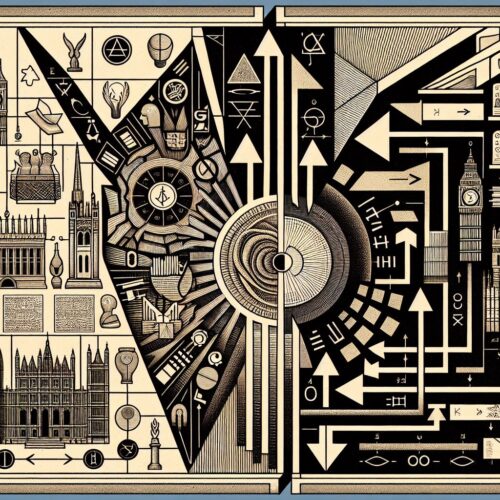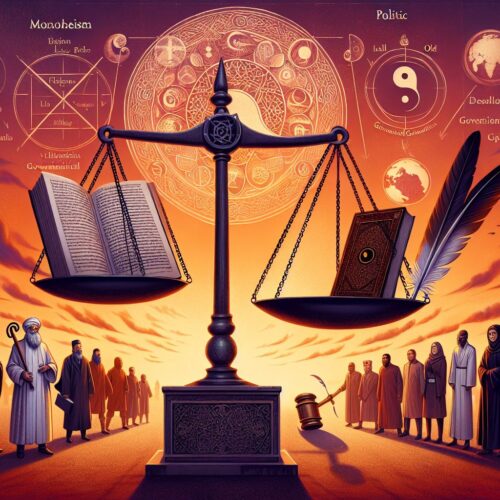In a world dominated by the forces of globalization, the interplay between religion and politics continues to shape the course of nations. At the heart of this entanglement lies monotheism, a belief in the existence of a single supreme deity. While monotheism originated as a spiritual force, its influence has seeped into the realms of politics, shaping the ideologies, policies, and actions of nations. This article delves into the intricate relationship between monotheism and politics, shedding light on the moral, social, and cultural dimensions that have both united and divided societies.
The Search for Divine Guidance
Monotheism, at its core, provides a moral compass, offering adherents a set of values and norms to guide their actions. This often extends into the political sphere, where believers seek to ground their political decisions in the teachings of their faith. For instance, in Islam, the concept of “sharia” serves as a divine law that governs various aspects of life, including politics. This intertwining of religious principles and political governance has sparked debates, sometimes leading to controversy, as some argue for a more secular approach to governance.
Unity and Division
Monotheism, while often intended to unite believers under a shared faith, has also become a source of division in the political arena. In some instances, monotheistic beliefs have fueled conflicts and deepened the fault lines within societies. The Israeli-Palestinian conflict, for example, is steeped in the religious claims of both Judaism and Islam, exacerbating tensions and hindering peace efforts. Such divisions are not unique to the Middle East; throughout history, monotheism has been invoked as a justification for conquest, colonization, and persecution, highlighting the potential dangers of intertwining religious beliefs with political ambitions.
The Moral Imperative
The moral dimensions of monotheism can provide a powerful impetus for political activism and change. Many religious leaders and movements have played pivotal roles in challenging oppressive systems, advocating for human rights, and fostering social justice. From Martin Luther King Jr. in the United States to Archbishop Desmond Tutu in South Africa, monotheism has often provided a moral foundation upon which political movements have been built. Thus, it is not surprising that monotheistic beliefs continue to shape political ideologies, influencing public policies on issues such as poverty alleviation, healthcare, and climate change.
Balancing Act: Religious Freedom and Secular Governance
Acknowledging the delicate balance between religious freedom and secular governance is crucial in a democratic society. While monotheism undoubtedly influences political systems, it is essential to ensure that religious beliefs do not undermine the principles of equality, justice, and individual rights. Striking this balance requires navigating between respecting religious freedom and upholding the rights and freedoms of all citizens. A healthy and inclusive political environment demands robust dialogue, compromise, and a willingness to continuously reassess the impact of monotheistic beliefs on political systems.
Embracing Pluralism
To navigate the complexities of monotheism and politics, embracing religious pluralism is crucial. Recognizing and respecting diverse religious beliefs fosters a spirit of coexistence and allows for a more inclusive and tolerant political discourse. By acknowledging that monotheistic beliefs are not monolithic, we open the door to productive conversations that bridge the gap between religious and political ideologies. Encouraging interfaith dialogue and understanding can lead to collaborative efforts in tackling shared challenges and moving toward a more harmonious society.
In conclusion, the intersection of monotheism and politics is both fascinating and fraught with challenges. While monotheism can serve as a moral compass, guiding political decisions and inspiring social change, it can also fuel division and conflict. Navigating the relationship between monotheism and politics requires careful consideration of the delicate balance between religious freedom and secular governance. By embracing pluralism, fostering dialogue, and upholding the principles of equality and justice, societies can strive for a political landscape that respects the diverse beliefs of its citizens while working towards shared goals.

